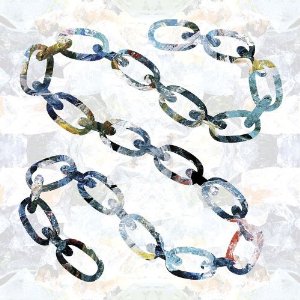With fads getting shorter and bloggers inventing new ways to categorise music on an almost weekly basis, it’s tempting to doubt the long-term validity of a genre like chillwave. Admittedly, a number of great tracks have emerged over the last 18 months or so that could sit comfortably in that particular box, but when even the scene’s biggest names deny it’s very existence, questions have to be asked. Neon Indian’s Alan Palomo has gone on record to laugh off the notion that a couple of commonalities between bands constitutes a genre, and he has a point: despite similarities in recording methods or overall feel, Palomo’s music sounds nothing like that of, say, Washed Out or Toro Y Moi. And would you really lump the likes of Beach House in with Memory Tapes, or Nite Jewel with Ducktails? That’s like comparing Xiu Xiu and Erasure just because they both use synthesizers. However, if you take into account all the various elements that supposedly unify these groups and artists – synths, drum machines, filtered vocals and laid-back vibes – then Small Black might just be the definitive chillwave band.
On New Chain , the Brooklyn quartet’s debut full-length on the ever-expanding Jagjaguwar label, Small Black successfully smudge the lines that separate rock and pop, delivering beats and hooks not too far removed from the more experimental end of the mainstream with the studied detachment of "last gang in town" indie boys. Favouring a harder-edged, more beat-driven sound – approximating hip-hop breaks and shuffling dancefloor rhythms – than many of their peers, their take on chillwave is comparable to the Happy Mondays’ approach to the baggy scene of the early 90s – party music for those too stoned to party. The liberal use of bouncy synth riffs and big bass grooves owe more than a little to New Order, and singer Josh Kolenik’s airy vocals recall many an 80s indie front-man, but this is much more than an exercise in imagined nostalgia; New Chain is very much a 2010 album, its synthesized lightweight psychedelia bridging the gap between retro travellers like Tame Impala and more tech-savvy counterparts such as Caribou.
If the group’s pop sensibilities hint at a wider worldview than that of their peers, their ambition is reflected in the album’s increased production values. Whereas the EP was very much a bedroom project, New Chain is the result of comparatively luxurious sessions with producer Nicolas Vernhes at Rare Book Room, and the leap in sound quality is immediately obvious. Here, keyboards are layered rather than smeared, the beats sound like they come from drum machines as opposed to slapped takeaway containers, and the vocals are actually audible unlike those buried in the EP’s foggy mix. The difference is almost revelatory, like seeing an old movie in all its digitally restored glory, and possibly New Chain‘s biggest triumph: in displaying the guts to drag chillwave out of its lo-fi comfort zone, Small Black really set themselves apart from the pack; far enough at least to suggest the genre may have room to grow after all.


